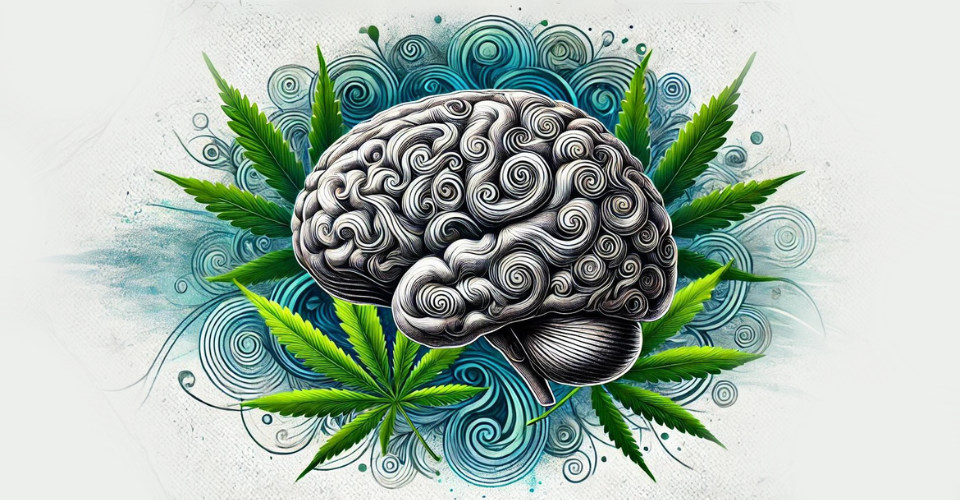Understanding the Alcohol-Anxiety Cycle
Cannabinoid may just be the solution to managing anxiety during alcohol withdrawal. Anxiety disorders rank highly among the disorders in the United States, with around 15% of Americans suffering from this disorder annually. This is a difficult relationship due to poor treatment outcomes and high relapse rates. Anxiety becomes elevated during chronic alcohol use and subsequent withdrawal as well as increased sensitivity to anxiety and stress resulting to greater alcohol consumption.
The Exploration of Cannabinoid Potential
The paper published in Frontiers in Neuroscience tackles potentiality of cannabinoids: cannabidiol (CBD) and CBD mixed with tetrahydrocannabinol (THC), at relieving alcohol withdrawal anxiety in mice. The findings indicate that cannabinoid effects on anxiety depend on timing.
Objectives and Backgrounds of the Research
This study aimed to explore whether cannabinoids could reduce anxiety during alcohol withdrawal thereby reducing relapse among individuals with AUD. Prior studies have recognized that cannabinoids may be useful for patients suffering from anxiety or stress-related conditions; however, their roles in alleviating ethanol withdrawal induced-anxiety remained unclear.
Methodology and Approach
A total of 248 adult male and female C57BL/6J mice were used for this study. To induce alcohol dependence, they were exposed to chronic intermittent ethanol vapor which is a well-established model used while studying alcohol withdrawal (Brown et al., 2013). After dividing them into groups based on either undergoing four hour or twenty four hour abstinence periods following last ethanol vapor exposure.
Then these animals were treated either with vehicle solution or CBD at dose 10mg/kg body weight or its mixture with THC ratio 3:1. Before behavioral tests for thirty minutes, other mice were stressed by being restrained within a box for same period time given above before behavioral tests. Following this, the mice underwent an open field test to measure anxiety-like behavior.
Key Findings
- Timing:
- Mice in 4-hour withdrawal were more anxious than those in 24-hour withdrawal.
- Anxiety like behaviors were increased by CBD and the CBD mixture at the 4-hour withdrawal time points.
- CBD mixture increased time spent by mice on center of field after 24 hours withdrawal, indicating reduced anxiety.
- Neurobiological Insights:
- In central amygdala which is a brain region regulating anxiety and alcohol consumption, changes in neuroimmune cell activity were observed.
- At four hour withdrawal mark, astrocytes and microglia as key neuroimmune cells decreased.
- It is possible that these changes are normalized by CBD and the CBD mixture, suggesting a mechanism through which they may influence alcohol withdrawal related anxiety
- Plasma Analysis:
- After 24 hour abstinence period, THC concentrations were higher among mice than control mice; furthermore, their rate of metabolism of THC was faster compared to controls
- This metabolic difference between cannabinoids might cause the observed behavioral effects and notably the decrease in anxiety seen with CBD mixed with THC at 24 hours post-withdrawal.
Implication for Future Research
The findings from this study suggest that cannabinoid effects on alcohol withdrawal-induced anxiety are multifaceted hence highlighting several areas for further exploration. One direction would be to investigate how these metabolites are processed during different stages of ethanol abstinence.
Looking forward
Importantly, Yuval Silberman, an associate professor of neuro and behavioral sciences and an assistant dean for interdisciplinary research at Penn State College of Medicine, emphasized it. “Although these all received the same original dosages, our data indicated that CBD as well as THC concentrations in the plasma were higher in the alcohol-withdrawing mice compared to their counterparts that have not undergone such treatment. This might serve to explain part of our findings regarding withdrawal timing and cannabinoid exposure.”
In summary
This study gives significant insights into possible use of cannabinoids in managing anxiety during alcohol withdrawal and underscores crucial role played by timing in cannabinoid administration. More investigations may offer hope for better therapeutic approaches using cannabinoids for those with alcohol-related issues.
References
Mariam Melkumyan, Vibha M. Annaswamy, Alexandra M. Evans, Opeyemi F. Showemimo, Zari E. McCullers, Dongxiao Sun, Terrence E. Murphy,Kent E.Vrana,Amy C.Arnold,Wesley M.Raup-Konsavage,Yuval Silberman (2016), Effects of Cannabidiol , With and Without Δ^9-Tetrahydrocannabinol , on Anxiety-like Behavior following Alcohol Withdrawal in Mice”.



























Leave a Reply
You must be logged in to post a comment.